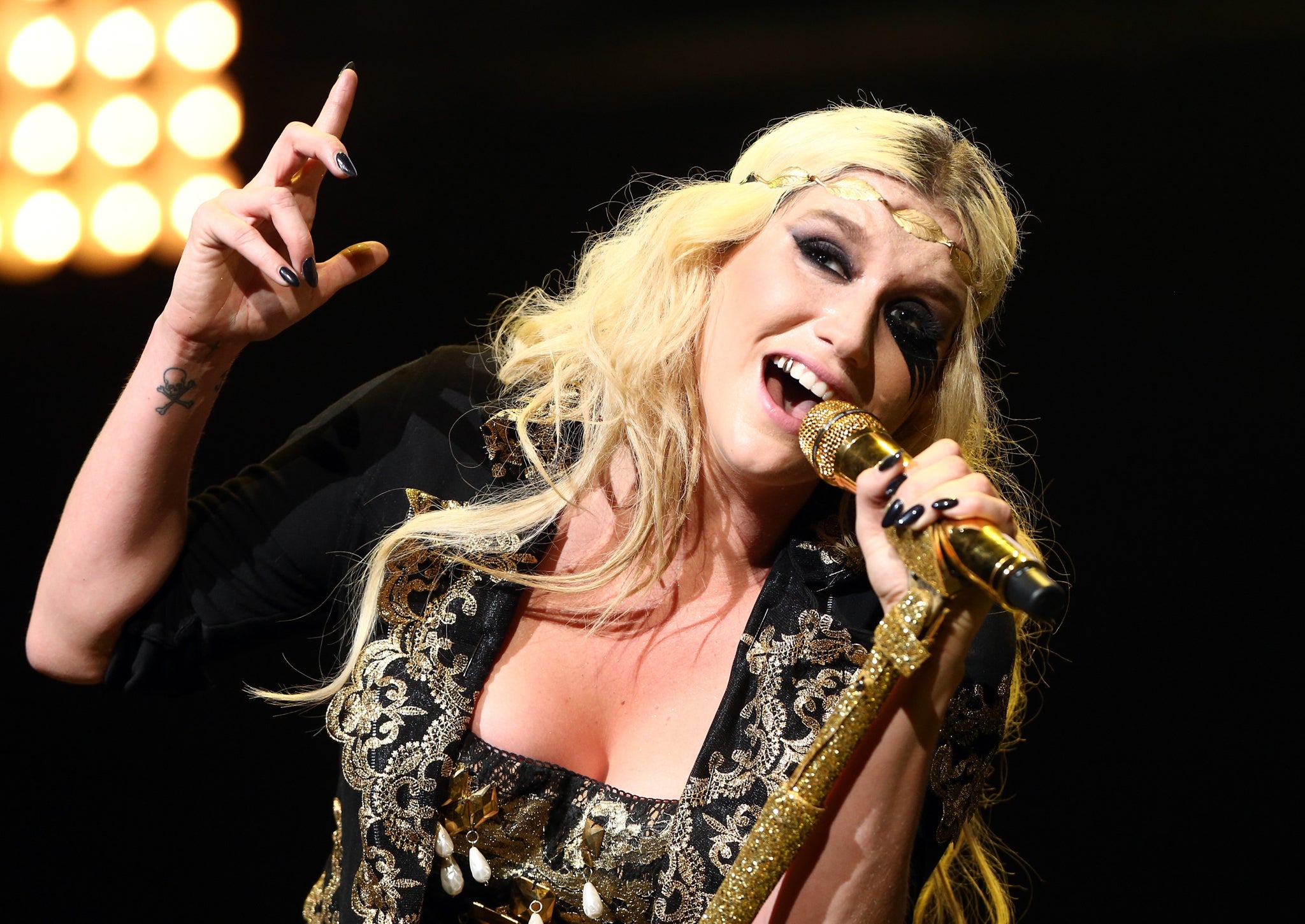Ke$ha accused of smuggling ivory
Stockpiles must be destroyed to prevent sales of ivory

Your support helps us to tell the story
From reproductive rights to climate change to Big Tech, The Independent is on the ground when the story is developing. Whether it's investigating the financials of Elon Musk's pro-Trump PAC or producing our latest documentary, 'The A Word', which shines a light on the American women fighting for reproductive rights, we know how important it is to parse out the facts from the messaging.
At such a critical moment in US history, we need reporters on the ground. Your donation allows us to keep sending journalists to speak to both sides of the story.
The Independent is trusted by Americans across the entire political spectrum. And unlike many other quality news outlets, we choose not to lock Americans out of our reporting and analysis with paywalls. We believe quality journalism should be available to everyone, paid for by those who can afford it.
Your support makes all the difference.American popstar Ke$ha was accused by online tabloid Radar of smuggling a snuff box carved from illegal ivory into the USA this week. Radar obtained the information from government documents which apparently showed that Ke$ha tried to bring the contraband ivory into Los Angeles from Japan where she was on tour in August 2012.
The website condemned Ke$ha for ‘hypocrisy’ because she is also an ambassador for the Humane Society International, a global wildlife protection charity. Humane Society’s Vice President, Michelle Cho defended the singer, who it seems bought the $500 (£300) snuff box unwittingly. Cho said: “Ke$ha apparently bought a piece of jewelry at a thrift shop and was unaware it was ivory. It is not uncommon for even the most dedicated animal lover to mistakenly buy ivory when they think it’s another material.
Cho concluded: “Ke$ha, like other animal advocates, assures us she would never knowingly contribute to such a gruesome industry.” The fact that even high-profile advocates of conservation are buying ivory appears to show that consumers of ivory have an extraordinarily poor understanding of the plight of elephants.
The illegal ivory trade is worth £6bn and claims the lives of 100 elephants every day. In 2008, Japan bought over 50 tons of legal ivory from Botswana, Namibia and Zimbabwe. The ivory was bought for approximately $157 (£95) per kilo and taken from government stockpiles of elephants, which died of natural causes.
Since the sale of this legal ivory, illegal poaching has increased dramatically to feed demand from the rising middle classes of East Asia. 2013 was the worst year for ivory seizures and a reported 23 tonnes of ivory were seized worldwide.
Critics have blamed these legal sales of ivory for fuelling demand in Asia and creating parallel legal markets, which are used as a subterfuge for selling illegal ivory.
Max Graham, CEO of Space for Giants, the beneficiaries of the Independent’s elephant campaign said: "Legal sales of stockpiles undermine our work against poaching in Africa and fuel a underground trade of which both elephants and humans become unnecessary casualties.”
Stockpiling ivory from elephants has drawn criticism from conservationists worldwide. Maintaining stockpiles in not only extremely expensive, but also signals the potential for legal sales in the future.
Keeping stockpiles also risks smuggling. Cases of smuggling have been recorded in Mozambique, Tanzania and Zambia, where three tonnes of ivory were smuggled from government stockpiles through an air conditioning vent.
Last week, China’s Guangdong province destroyed a six tonnes of stockpiled of ivory in an unprecedented gesture against illicit ivory trade. This amount was equivalent to one sixth of the illegal ivory seized in 2013.
The Chinese media has urged the government to destroy the 33 tonnes of illegal ivory stockpiled in Hong Kong. Though this is believed to be the largest existing stockpile in the world, China has never officially released data which shows how much ivory it has collected.
The Independent's elephant campaign will raise money for Space for Giants, a charity which help prevent elephant poaching and work with local communities in Kenya to stop the slaughter of elephants.
Join our commenting forum
Join thought-provoking conversations, follow other Independent readers and see their replies
Comments